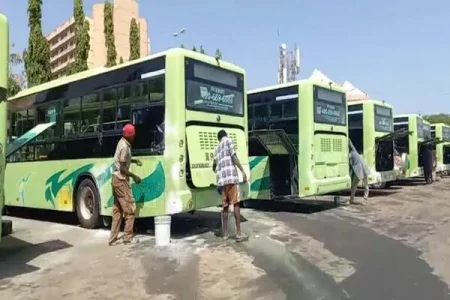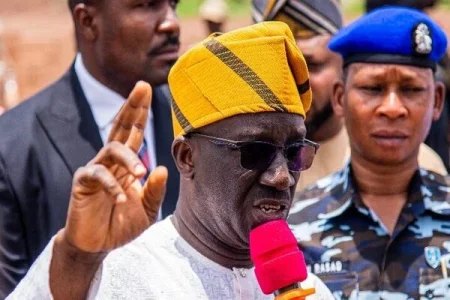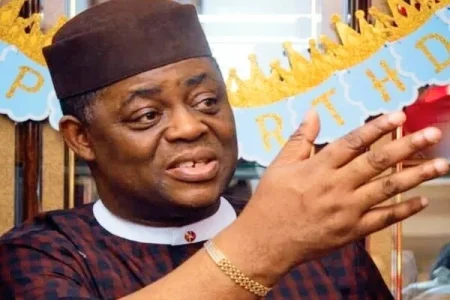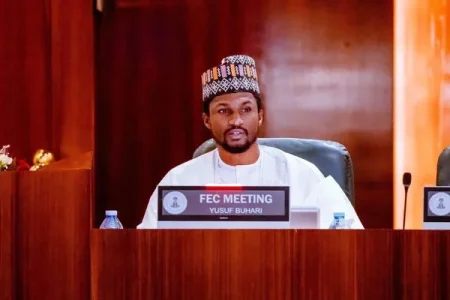
In a surprising turn of events, the Bola Tinubu-led government has reportedly procured a fleet of "used" high-capacity buses for mass transit as part of its efforts to alleviate transportation challenges exacerbated by the recent fuel subsidy removal. SaharaReporters, during a recent investigation, observed these buses being worked on by a team of panel beaters, technicians, and painters at the Federal Secretariat car park in Abuja.
The panel beaters were seen diligently restoring the bodies of the buses, while painters worked on giving them a fresh look. Intriguingly, oil was observed dripping from the engines of some of these buses, indicating significant wear and tear.
Despite the apparent refurbishment, an inside look at the 14 vehicles revealed worn-out seats, smashed windshields, and old tires, raising concerns about the safety and reliability of these buses. The Federal Ministry of Transport allegedly owns these buses, marking them as part of a palliative program aimed at reducing transportation costs.
However, when questioned about the ownership, the Press Officer of the Ministry of Transport, Mr. Olujimi, denied any connection. In response to inquiries, Olujimi stated via text message, "They are not, to my knowledge. Thanks for asking."
These 33-passenger capacity buses are purportedly part of the Compressed Natural Gas (CNG)-powered fleet resulting from a Memorandum of Understanding (MoU) signed by the government with organized labor on October 15, 2023. The government had promised that these CNG-powered buses would significantly reduce transportation costs, promoting CNG as a petrol alternative.
Despite the government's assurances, many Nigerians are expressing concerns about the safety of refurbished buses, especially considering the country's deplorable road conditions. Critics argue that the Tinubu-led government's decision to purchase "used" mass transit buses may jeopardize the lives of citizens, raising questions about the commitment to the earlier agreement with labor unions.
Recall that the fuel subsidy removal prompted the Trade Union Congress (TUC) and the Nigeria Labour Congress (NLC) to announce an indefinite strike in September. The strike, initially set for October 3, was halted on October 2 after the government agreed to allocate N100 billion for high-capacity CNG buses and related infrastructure.
As the controversy surrounding the procurement of "used" buses unfolds, the government's adherence to the agreed-upon terms and the overall impact on public transportation remain critical points of discussion among Nigerians.




